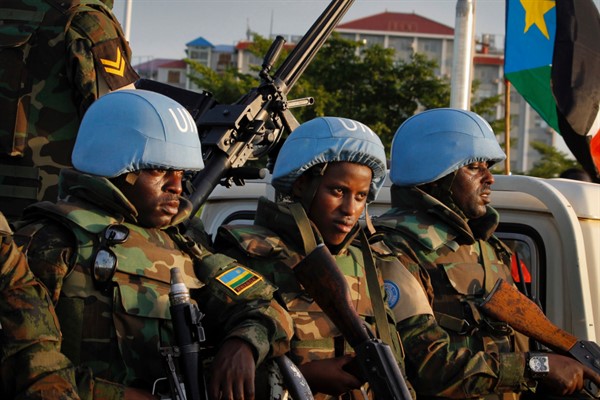The United Nations has no standing army, despite its initial plans to create one. Instead, when it launches a peace operation—the best established tool the international community has to address security threats—it relies on member states to voluntarily contribute personnel and troops. These U.N. deployments have grown in number and size throughout the 21st century, reaching a peak around 2014, when more than 100,000 military peacekeepers were stationed around the world. Today, four of the U.N.’s 12 peace operations—in South Sudan, Mali, the Democratic Republic of Congo and the Central African Republic—are staffed with more than 10,000 troops each.
Along the way, the post-Cold War period saw a transformation in the type of member states that contributed to these missions most often. Industrialized democracies from Europe and North America had provided most of the personnel in early peace missions, but by mid-2021, the top 10 contributors looked quite different. At the top was Bangladesh, with close to 6,500 peacekeepers, followed by Nepal, India, Rwanda, Ethiopia, Pakistan, Egypt, Indonesia, Ghana and China, all of which deployed more than 2,000 troops.
With the exception of Ghana, all of these states have faced criticism for failing to uphold civil and political rights. Freedom House’s widely used democracy index classifies them as “partly free” or “not free” countries. Similarly, the Varieties of Democracy index shows that nine of these 10 countries either fail to uphold or directly violate the values and principles that the U.N. was founded to promote, including human rights, a strong rule of law, political representation and checks and balances within governments, to name a few. And the same goes for most of the other countries that rank high on the list of troop-contributing countries.

